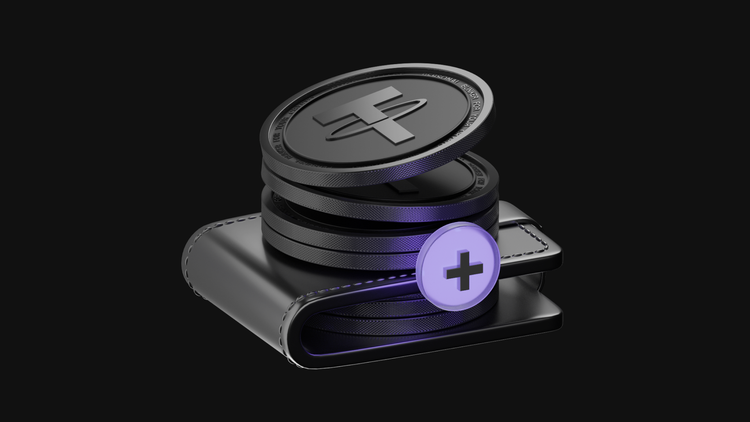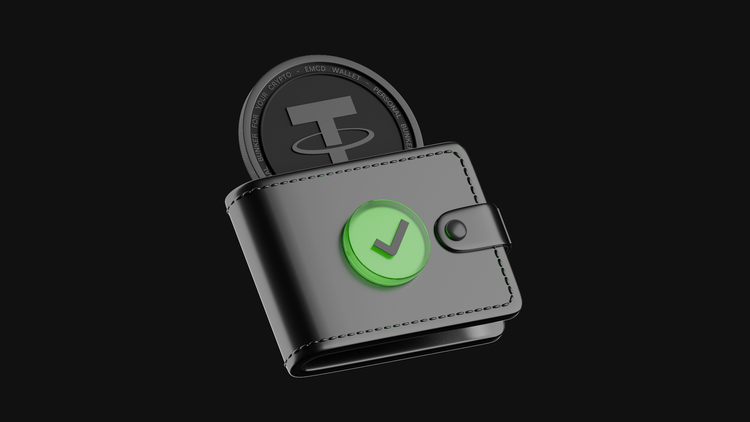Top Crypto Payment Gateways Compared: Features, Fees & Use Cases

A practical guide for businesses choosing the right cryptocurrency payment gateway — with real-world comparisons, key features, and tailored use cases.
As crypto adoption gains traction in 2025, forward-thinking companies are exploring how to integrate fast, secure, and cost-effective payment solutions. A reliable crypto payment gateway enables businesses to accept cryptocurrency payments while managing risks like volatility, compliance, and operational complexity.
In this guide, we analyze the top cryptocurrency payment gateways, comparing the features that matter most to businesses — from supported assets and fees to regulation-readiness and integration ease.
What Does a Crypto Payment Gateway Actually Do?
A crypto payment gateway is a digital system that enables merchants to accept cryptocurrencies such as Bitcoin, Ethereum, and USDT in exchange for goods or services. Much like traditional card processors, these gateways facilitate secure, trackable transactions — but do so via blockchain.
The role of a payment gateway for cryptocurrency is to connect your customer’s digital wallet with your own, often with the option to convert funds into fiat in real time. By bridging decentralized crypto networks and centralized business infrastructure, these gateways ensure speed, automation, and transaction transparency.
From SaaS and eCommerce to real estate and fintech, businesses use crypto gateways to reduce costs, eliminate chargebacks, and expand their payment reach globally.
What Makes a Great Crypto Payment Gateway?
Not all crypto payment systems offer the same value. The best choice depends on your transaction volume, regulatory exposure, and integration complexity.
A robust payment processor for crypto should offer multi-currency capabilities, enabling support for multiple coins and stablecoins. This flexibility helps you reach crypto-native audiences and manage diversified portfolios.
Managing volatility is equally important. Leading gateways offer instant settlement or auto-conversion to fiat to help stabilize revenue and avoid exposure to price swings.
Security and compliance are non-negotiable — particularly for B2B businesses. Look for providers offering built-in AML/KYC tools and regional licensing, which can significantly reduce legal risks.
On the technical side, seamless integration is key. Whether you're connecting a storefront, app, or internal billing system, developer-friendly APIs, SDKs, and plug-ins ensure faster go-live with fewer headaches.
Lastly, the user experience matters. A clean dashboard, transparent reporting, and responsive support all contribute to easier operations and better end-user trust.
Top Crypto Payment Platforms to Know in 2025
The crypto payment landscape is maturing, with providers differentiating across compliance, ease of use, developer tooling, and cost-efficiency. Below is a comparison of leading gateways tailored to different business needs.
| Provider | Supported Coins | Fiat Conversion | Estimated Fees | Best For |
| EMCD Pay | 600+ | Yes | 0,5% | Conversion to fiat via p2p |
| CoinGate | 70+ | Yes | ~1% | eCommerce and gift card tools |
| NOWPayments | 160+ | Optional | 0.5–1% | Fast onboarding for SMBs |
| CoinsPaid | 30+ | Yes | Custom | Enterprise use and compliance |
| Cryptomus | 10+ | Optional | 0.4–1.5% | Anonymity-focused projects |
| CoinRemitter | 8+ | No | ~0.23% | Developers, minimal-fee platforms |
| Plisio | 50+ | Yes | ~0.5% | Flexible integration environments |
How the Leading Cryptocurrency Payment Gateways Compare
Choosing the right crypto payment gateway is about strategic fit — not just brand name. Below, we break down how the top providers differ across critical operational dimensions:
Supported Coins
NOWPayments leads with support for 160+ assets, followed by CoinGate and CoinsPaid. CoinRemitter and Cryptomus serve niche use cases with more limited offerings.
Fiat Conversion Options
CoinGate, CoinsPaid, EMCD Pay and Plisio support real-time fiat conversion, essential for mitigating volatility. CoinRemitter omits this feature, while NOWPayments offers it optionally.
Fee Structures
CoinRemitter leads in low-cost processing (~0.23%), making it attractive for volume-based models. CoinsPaid offers flexible pricing for large B2B clients.
API & Integration
All platforms offer integration tools, but NOWPayments, EMCD Pay and Plisio are particularly strong in plug-and-play modules — ideal for fast launches.
Compliance & Regulation
CoinsPaid stands out for its full AML/KYC suite and licensing credentials, making it a top choice for regulated industries. Others offer partial compliance or jurisdiction-limited services.
Which Platform Is Best for Your Business Type?
Not every crypto gateway fits every use case. Use the table below to match top providers with your industry’s needs.
| Business Type | Best Gateway Match | Why It Works |
| eCommerce / Retail | CoinGate, EMCD Pay | Good fiat tools, wide coin support, simple checkout UX |
| SaaS / Web Platforms | NOWPayments, EMCD Pay | Fast integration, broad API options, flexible fees |
| iGaming & Risk Markets | Cryptomus, EMCD Pay | Supports anonymous flows, privacy-first setup |
| B2B Services / Enterprise | CoinsPaid, EMCD Pay | Regulated, AML/KYC tools, custom contract terms |
| Developer Projects | CoinRemitter, Plisio, EMCD Pay | Low fees, fast setup, programmable API |
| Global Marketplaces | CoinsPaid, NOWPayments, EMCD Pay | Supports fiat + crypto, scalable architecture |
Are Crypto Payment Gateways Worth It? The Real Pros and Cons
Crypto gateways help businesses modernize payments, but they also come with trade-offs. Here’s a balanced view:
| Pros | Cons |
| Fast transactions without intermediaries | Cryptocurrency volatility may affect revenue |
| No chargebacks or fraud risks | Regulatory gaps in some jurisdictions |
| Global reach and new customer segments | Varying AML/KYC compliance across platforms |
| Lower processing fees vs. card networks | Smaller providers may offer limited support |
Quick Reference: Which Feature Matters Most?
Still deciding? Use this matrix to prioritize platforms based on your most important business need:
| If You Care Most About… | Gateway to Consider |
| Lowest processing fees | CoinRemitter, EMCD Pay |
| Easy integration | NOWPayments, Plisio, EMCD Pay |
| Fiat conversion | CoinsPaid, CoinGate, EMCD Pay |
| Compliance & licensing | CoinsPaid, EMCD Pay |
| Privacy / Anonymity | Cryptomus, EMCD Pay |
| Broad coin support | NOWPayments, EMCD Pay |
| B2B scaling / account support | CoinsPaid, EMCD Pay |
FAQ
What is the safest crypto payment gateway for businesses?
The safest options are those with full AML/KYC compliance, licensed infrastructure, and enterprise-grade security — such as CoinsPaid or NOWPayments. These platforms are built to meet regulatory requirements while maintaining operational reliability.
How do crypto payment gateways handle volatility in cryptocurrency prices?
Most gateways offer instant conversion to fiat or stablecoins at the point of transaction. This protects your revenue from market swings and ensures predictable cash flow.
Can I accept crypto payments without converting to fiat?
Yes, many cryptocurrency payment gateways allow you to hold digital assets without automatic conversion. This is useful for businesses operating entirely on-chain or managing their own treasury.
What are the typical fees associated with crypto gateways?
Fees usually range between 0.2% and 1%, depending on the provider and your transaction volume. These costs are generally lower than traditional card networks and come with no chargeback risk.
How easy is it to integrate a crypto payment gateway with my website?
Integration is typically straightforward with REST APIs, plug-ins for platforms like Shopify or WooCommerce, and full documentation. Most businesses can go live within a few hours to a couple of days.
Are crypto payment gateways legal and compliant with regulations?
Yes, leading providers operate under recognized compliance frameworks and licensing regimes. Always confirm that the gateway aligns with legal requirements in your jurisdiction before integration.
Conclusion: Choosing the Best Crypto Payment Gateway for Your Business
In 2025, crypto payments are no longer niche — they’re a smart move for forward-looking businesses. The best crypto payment gateway depends on your use case: compliance-heavy enterprise, developer-first startup, or fast-scaling eCommerce brand.
NOWPayments, EMCD Pay and CoinGate offer the broadest coin and plug-in support, while CoinsPaid leads on regulation and enterprise integration. CoinRemitter and Plisio remain ideal for lean teams seeking speed and savings.
Ultimately, your decision should balance features, compliance, integration ease, and total cost of ownership. A great crypto gateway doesn’t just process — it helps scale trust, global reach, and recurring revenue.
Ready to integrate crypto payments into your business? Explore your options, compare providers, and start building a faster, more flexible payment experience today.












